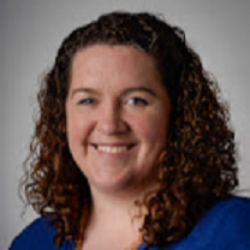
Assessment of Learning Outcomes Certificate Program
The Assessment of Learning Outcomes Certificate is designed for faculty, administration and staff members at a college or university who are or will be either engaged in the assessment of learning outcomes at the course or program level or be responsible for designing, reviewing or coordinating curricular mapping or other academic assessment activities at their campus. The certificate courses focus on the importance of assessment activities in improving teaching and learning. Participants will learn how to develop learning outcomes, to use rubrics and other assessment tools and to identify strategies for using results to improve the academic experience for students and faculty. The courses will also provide participants with the ability to develop skills to actively contribute to program review, curricular mapping and accreditation projects at their campus.
To receive an overall completion certificate, participants must complete a series of three courses which contain various learning activities delivered in an online, asynchronous format using the SUNY Center for Professional Development learning management system (LMS). See details of delivery and activities within each course description. Each course will require approximately 2 – 4 hours of “outside” course work.
Sponsored by the SUNY Center for Professional Development (CPD) and the SUNY Council on Assessment (SCoA)
Learning Objectives
- Demonstrate an understanding of the guiding principles of student learning assessment to improve teaching and learning and program development.
- Ability to construct a curricular map and demonstrate an understanding of the implications of curriculum mapping for assessment of learning outcomes.
- Construct learning outcomes and develop an assessment plan for a course, learning activity, academic major or program.
- Develop and apply rubrics to assess learning activities (both face to face and online).
- Identify strategies for using assessment results to improve learning (closing the loop).
- Coordinate activities related to academic assessment on their campus.
Program Completion Requirements
To earn the Assessment of Learning Outcomes Certificate, participants must complete all three courses. Badges will be awarded individually to allow participants maximum flexibility in taking what they need and want from the program without being obligated to complete the entire program.
Course Descriptions
Course 1: Assessment to Improve Teaching and Learning
Course Description: This course is designed for assessment coordinators and faculty and staff involved in the assessment of student learning. The course provides a foundation on the basic concepts of the principles of assessment, summative and formative assessment, curriculum mapping, and the ways assessment can contribute to the improvement of teaching and learning. The course is presented as four modules with varying lengths, for a total of 6 weeks.
Course Learning Outcomes and Supporting Objectives:
- Demonstrate an understanding of the guiding principles of student learning assessment.
- Identify what assessment is;
- Identify defining characteristics of good assessment practices; and
- Examine principles of assessment of student learning.
- Demonstrate an understanding of the role of assessment to improve teaching and learning and program development/revision:
- Identify the basic characteristics and examine summative assessments;
- Identify the basic characteristics and examine formative assessments;
- Examine advantages and disadvantages of using summative and formative assessments; and
- Recognize the usefulness of various assessment for improving teaching and learning.
- Demonstrate an understanding of the concept of curriculum mapping
- Identify the types and components of a viable curriculum map;
- Construct a curriculum map; and
- Identify implications of curriculum mapping for improvement of teaching and learning.
Course Activities/Resources:
Module Materials –presentations, samples, links to resources, worksheets, etc.
Discussion Board – for general questions from the participants and for specific assignments posted by the instructor throughout the course
Course 2: Planning and Implementing an Assessment of Student Learning
Course Description: This course is designed for assessment coordinators, faculty, and staff involved in the assessment of student learning and/or individuals who have completed the first course in the Certificate Program. The focus of this course will be on planning and implementing an assessment of student learning. Planning involves activities that lead to the development of learning outcomes and creation of an assessment plan to measure the outcomes in the context of a course within a program, a learning activity, or a program of learning. The implementation phase of this course includes the development of a rubric to assess learning outcomes and the application of the rubric to an assessment activity. The course is presented in 3 modules, for a total of 6 weeks.
Course Learning Outcomes:
- Planning Phase of Assessment:
- Identify an area of assessment and develop learning outcomes that bridge from an individual course, program, or activity to the overarching program, department, or institutional objectives.
- Identifying tasks to measure each learning outcome.
- Implementation Phase of Assessment:
- Develop a rubric to assess a specific task and learning outcome in the plan.
- Apply the rubric, review implementation, and refine the rubric.
- Evaluate the designed assessment.
Course Activities/Resources:
- Module Materials (assignments, samples, links to resources, etc.)
- Discussion Board – Used to practice both development of assessment elements and providing substantive feedback.
- Assignments – developing and piloting an assessment from outcome to rubric evaluation.
- Email – announcements and serves as an ‘office’ for questions
-
-
Course 3: Closing the Loop: Using Assessment for Improvement
Course Description: This course is designed for faculty and staff already engaged in assessment work or having completed the first two courses in the certificate program. The focus will be on taking data that has been collected from assessment work and using it to inform improvement efforts at all levels: individual students and classes of students, courses, programs, departments/schools, and the institution as a whole. The course is presented as five modules with varying lengths, for a total of 6 weeks.
Course Learning Outcomes:
Identify strategies for using assessment results to improve learning (closing the loop):
- Identify levels of assessment data/interpretation and target the appropriate level for intervention;
- Describe and design interventions and improvements applicable at each level;
- Demonstrate an understanding of the impact of climate and institutional policies on the success of improvement efforts; and
- Apply principles of advocacy for making change happen.
Coordinate activities related to academic assessment on their campus:
- Describe the characteristics and behaviors of a successful assessment facilitator;
- Compare and contrast the benefits of bottom-up and top-down approaches to assessment coordination;
- Describe the resources and support required to implement a university-wide, sustainable assessment plan;
- Evaluate the role of technology in assessment coordination; and
- Design a plan for coordinating assessment activities that emphasizes continuous improvement efforts.
This learning outcome and each of its objectives will be assessed via the final written paper, the Assessment Plan. Students will construct the plan in smaller pieces in their journals, receiving feedback at each step. The final deliverable will be a compilation of their final revisions of all pieces into a coherent and well-designed assessment plan specific to their own campuses, including an understanding of their respective climates, policies, and the degree to which advocacy efforts are required for improvements to occur.
-
- Module Materials (narrated presentations, samples, links to resources, videos, worksheets, etc.)
- Discussion Board – for general questions, and for specific questions posed by the instructor as the course evolves
- Journal – a private place to craft course assignments incorporating instructor feedback
- Blogs – a place to post the final refined assignments and gather feedback from other students
- Course Wiki – a collaborative place to develop a resource guide for assessment professionals based on lessons learned throughout the course and shared from personal experience
Meet the Instructors

Kirk Jones

Sara Phillips

Helen Wittmann
Dr. Wittmann has co-chaired the College’s Assessment Advisory Council and its Institutional Review Board, served as a member of the College’s Strategic Planning Council, its Middle States Self-Study Committee, and previously was campus chair of Faculty Governance. She has given multiple presentations, including to The Assessment Network of New York.
Course Pricing
CPD Member
$300 Per Course
Discounted course pricing when registering for three courses at one time
$260 per course
Non-CPD Member
$350 Per Course
Discounted course pricing when registering for three courses at one time
$310 per course
Non-SUNY
$400 Per Course
Discounted course pricing when registering for three courses at one time
$360 per course
Group Discounts Available
Additional discounts are available to groups of the following size attending the same program:
- 5-9 people = 10% discount
- 10-19 people = 15% discount
- 20-29 people = 20% discount
Please send your group request to cpdinfo@suny.edu at least 30 days prior to the start of the course/program.
How to Pay
Available payment methods are:
- Credit Card (Mastercard or Visa)
- CPD General Points
- SUNY Online+ Points
- Campus Check
- Journal Transfer
CPD General/Technical Points: To pay with CPD General or Technical Points, your campus must be a CPD Member. Check if your campus is a member. It is the responsibility of the registrant to determine if enough points are available to use BEFORE completing the registration process. Please contact your Campus Points Contact to determine points eligibility. If points are denied, the registrant is responsible for the payment.
SUNY Online+: To pay with SUNY Online+ Points, you must receive prior approval and you must submit a request via the SUNY Online+ CPD Points Approval Form
Campus Check: Prior campus approval is required. Make check payable to SUNY Center for Professional Development. Mail to SUNY CPD at the address below.
Journal Transfer (State Operated Campuses Only): Prior campus approval is required. An account number with authorizing signature for Journal Transfers is required within 48 hours. You must print and return the invoice that is included with the registration confirmation email.
Important: FULL payment is required 30 days from the date of registration. For more information click CPD Payment Terms and Conditions.
Registration
2026 Course Dates
Spring
- Course 1: Assessment for Improvement of Teaching and Learning Jan. 6 – Feb. 16
- Course 2: Planning and Implementing an Assessment of Student Learning Feb. 17 – March 30
- Course 3: Closing the Loop: Using Assessment Results for Improvement March 31 – May 11
Summer
- Course 1: Assessment for Improvement of Teaching and Learning May 12 – June 22
- Course 2: Planning and Implementing an Assessment of Student Learning June 23 – Aug. 3
- Course 3: Closing the Loop: Using Assessment Results for Improvement Sept. 22 – Nov. 3
Contact Us
The SUNY Center for Professional Development (CPD) supports a wide range of professional development opportunities for the academic, technical, and leadership communities across the SUNY System.
Phone: 315-214-2440
Email: cpdinfo@suny.edu